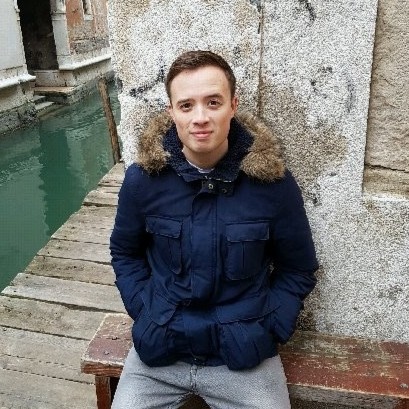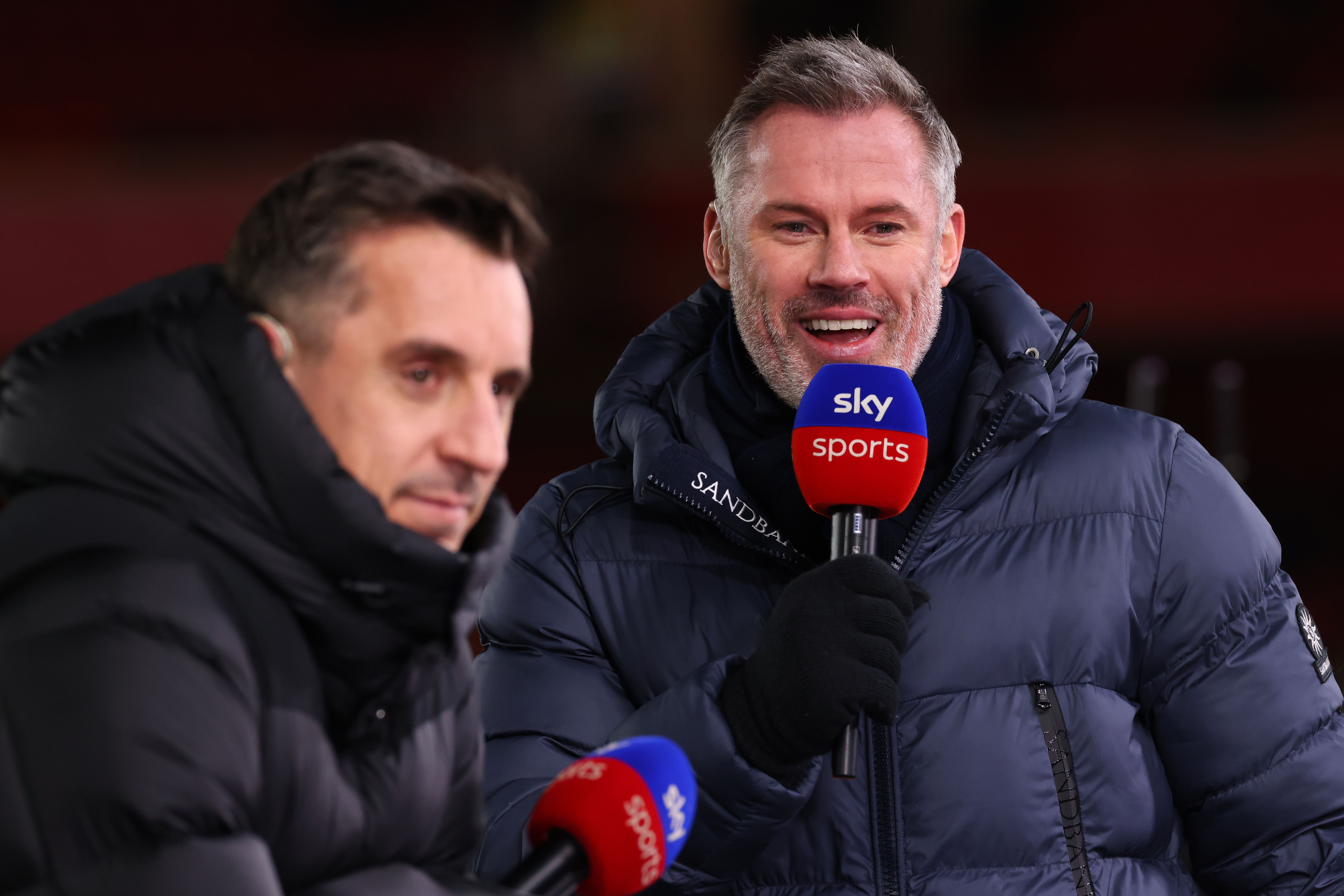FourFourTwo's 50 Best Football Managers in the World 2015: 20-16
Into the top 20 we go, bringing you Spain’s under-the-radar Mr Fixit, a wily international operator and Holland’s new hero...
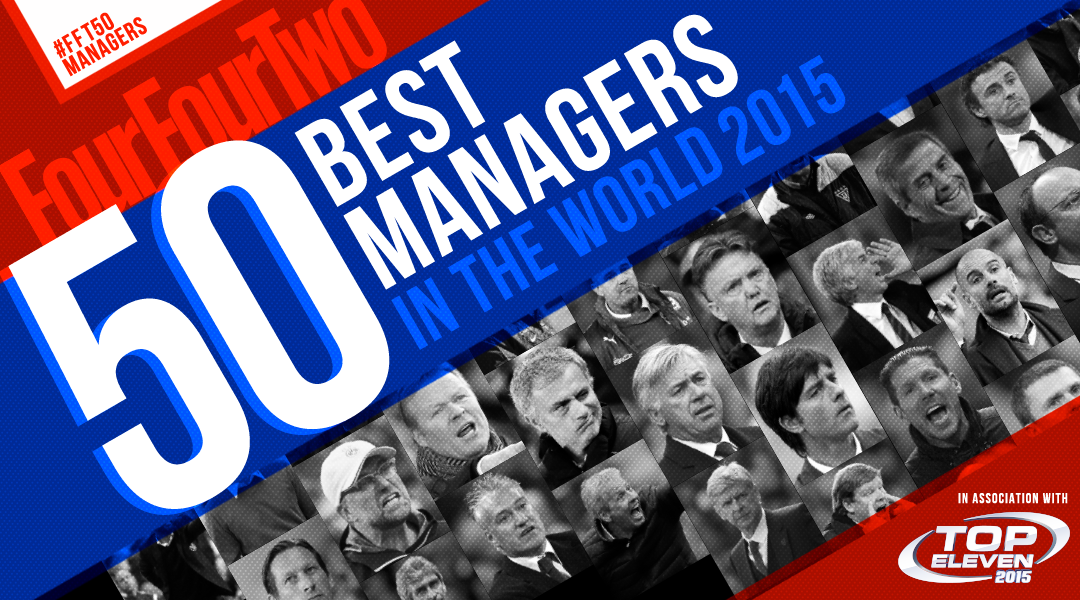
Words: Lee Roden, Alima Hotakie, Arthur Renard, Martin Mazur.
20) Marcelino (Villarreal)
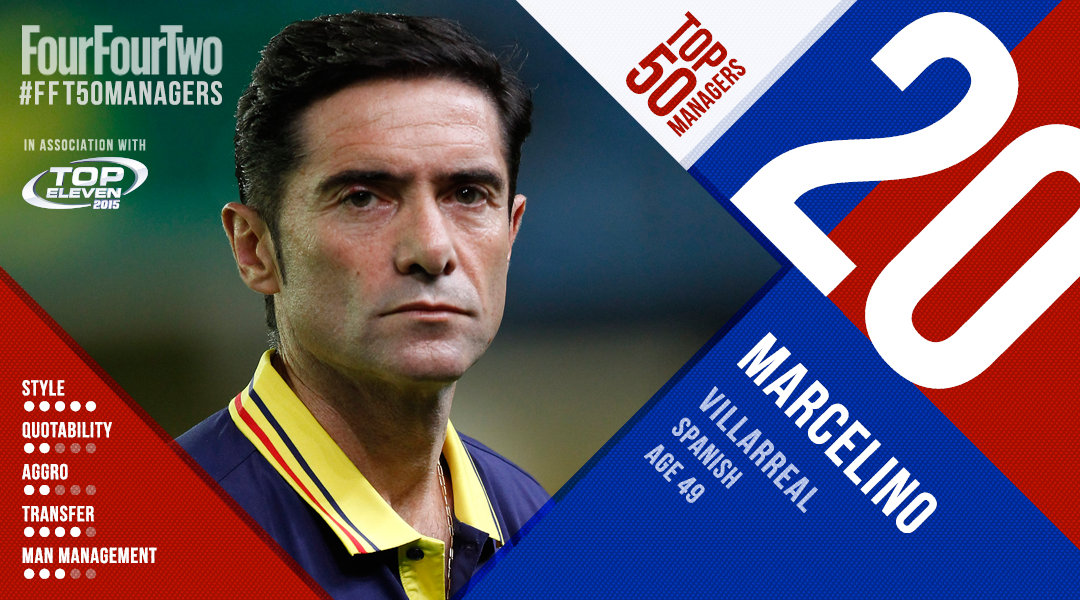
As if results in the league, cup and Europe weren’t enough, his success rate with young talents makes him the ideal fit for Villarreal, who focus on scouting, then harnessing potential early to avoid paying significant transfer fees
With two European trophy winners and five Champions League participants coming from Spain last season, the majority of focus inevitably falls on the top quintet of managers in 2014/15’s La Liga. Yet outside the elite there was still some top quality coaching on show, and no man displayed that more than Marcelino García Toral.
Being Villarreal boss can be something of a thankless task. The club’s economic model relies on them finding hidden gems, converting them into the finished article and then moving them on, sometimes mid-season. That’s what Marcelino had to contend with when he lost key centre-back Gabriel to Arsenal in January, yet immediately responded by delivering big results against Real Madrid and Valencia, as well as progression to the last 16 of the Europa League (where his side were unlucky to be drawn with eventual winners Sevilla).
For Villarreal, Marcelino means stability and consistency through a clearly defined way of playing that also happens to be incredibly exciting in its high-octane attacking focus. He’s the Yellow Submarine’s best manager since Manuel Pellegrini, and by extension, one of the best in the club’s history. They won’t be looking forward to replacing him when he moves on. LR
19) Oscar Tabarez (Uruguay)
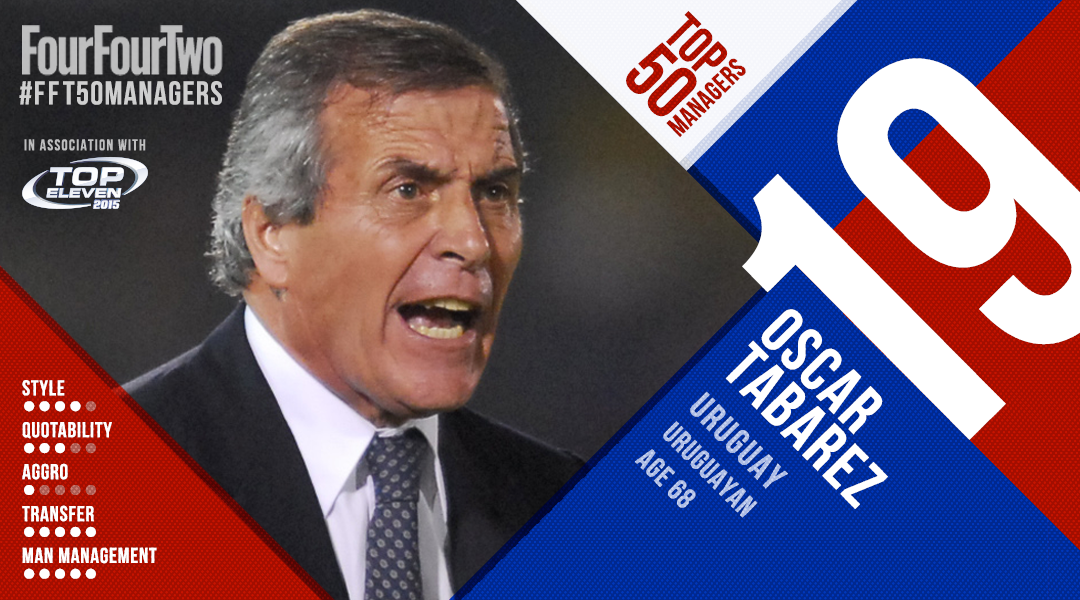
I knew him 23 years ago, and he's exactly the same now. After all these years in football, he's no longer the teacher, he's the director. Tabarez would tell you the exact words you needed to hear. When the players are at 1000 rpm, he's calm at 40 rpm
Tabarez isn’t just referred to as Maestro and Professor without reason. The 68-year-old former schoolteacher became the father of Uruguay’s renaissance in the late 80s, won Boca Junior’s first title in 11 years, coached in Serie A and La Liga, then returned to oversee Uruguay’s current golden generation that achieved a World Cup semi-final and won the Copa America in 2011.
Get FourFourTwo Newsletter
The best features, fun and footballing quizzes, straight to your inbox every week.
Ambitious and balanced, Tabarez is incredibly focused on developing a better system of talent detection for his country and closely follows training sessions of the younger Uruguayan national teams. “I don’t deal with stars. Stars are on the sky. I treat human people,” he explained when asked about handling a dressing room with the likes of Suárez, Cavani, or the ageing Forlán and Lugano.
Tabarez is a fan of Arrigo Sacchi’s Milan, with four at the back being one of his premises. But he’s proven capable of adapting quickly depending with the players he has, coming up with a 4-3-3 when most of the teams in South America still played 4-3-1-2, and then switching to a 3-4-3 if necessary. Players’ behaviour and team discipline is also his legacy in a country where garra was revered but often led to legendary pitch battles. MM
18) Phillip Cocu (PSV)
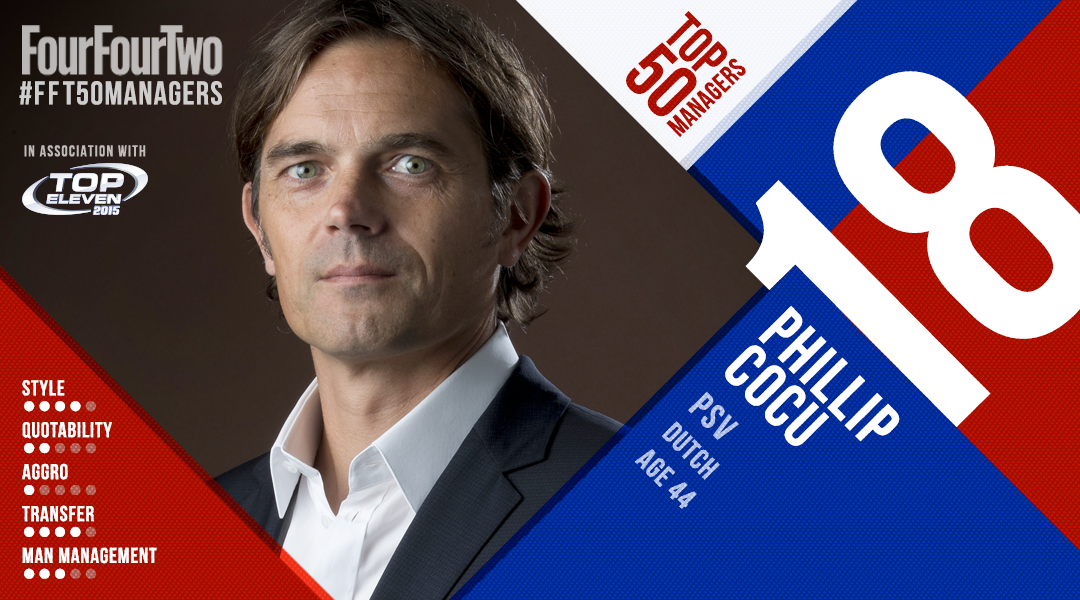
Phillip is really a confidant for the players; you can always tell him things honestly that you wouldn't another coach. It's amazing how he analyses games and is working to make the team and individual players better. He can add things outside of football
After a successful playing career, including six years at Barcelona, Cocu is making a name for himself as a manager as well. After learning his trade as assistant to the Dutch national team and youth coach in PSV’s academy, the 44-year-old took the head coach reins in 2013.
His first year proved to be tough with disappointing results – not to mention a health scare when doctors found a (thankfully benign) tumour – but the Dutchman remained true to his philosophy and bounced back in his second year with a romp to a famous Eredivisie title, 17 points clear of Ajax.
His challenge now is to prove he can continue his success as a coach. Next year he’ll lead his PSV side into the Champions League, though he’ll have to do it without the Manchester United-bound Memphis Depay.
Cocu has already stated that he will honour his contract at PSV, which runs until 2017. The ex-Netherlands international recently mentioned that he might even extend that deal, though he’s also spoken about his ambitions to be successful in another competition in the future as well. Some people think about Barcelona in that case, but in reality he’s only just getting started. For now, the Camp Nou can wait. AR
FEATURE Guardiola, Enrique… Cocu? How PSV's chief caught up with the cream of Barça’s crop
17) Lucien Favre (Borussia M’Gladbach)
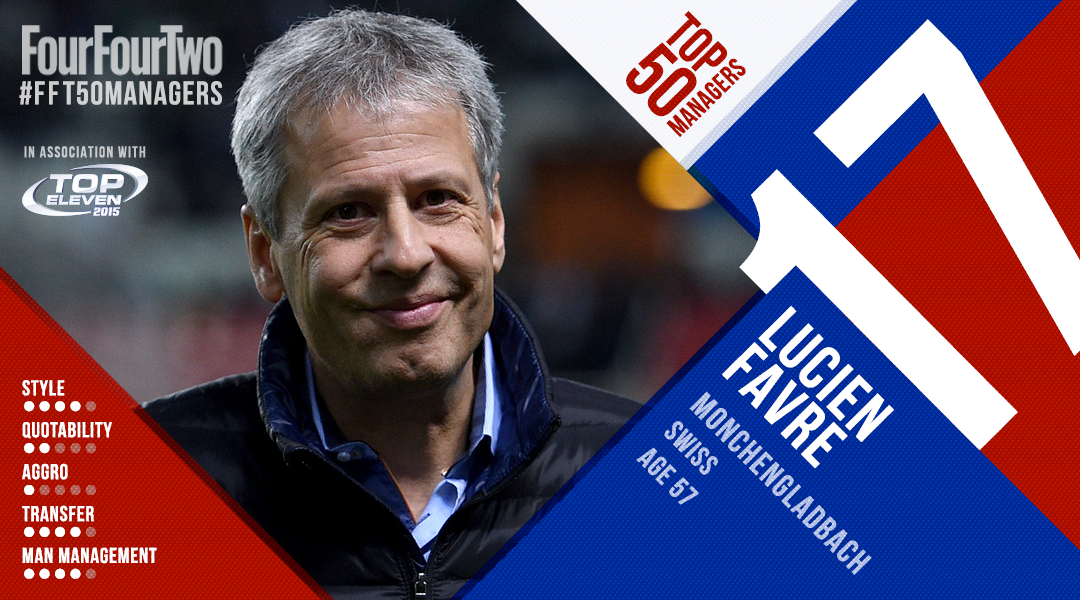
Favre is a good strategist and his extraordinary tactical approach can always be identified in each of his teams. Under his leadership, many players have progressed significantly and we took advantage of them in the national team
Favre is one of those coaches whose impact is immediate. After helping Hertha Berlin punch above their weight, the Swiss helped Borussia Mönchengladbach avoid relegation when he first took over in 2011, and has since steered them to third place with the second-best defensive record in the Bundesliga.
But his flexibility and tactical adaptability is what makes the 57-year-old truly stand out. It's no wonder his name was once linked to the job at Bayern, having completely reinvigorated Gladbach; see the miraculous fourth place achieved immediately after that relegation play-off, followed by more solid eighth- and sixth- placed finishes.
Favre doesn’t shy away from challenges and his ability to rebuild hasn’t gone unnoticed. He lost valuable players like Marco Reus (who many agree was helped to better his game under the Swiss), Dante and Roman Neustadter, but that didn’t affect his plans – or at least it didn't appear to.
Favre's men secured an automatic Champions League spot last season, with his tactical variation that teaches players to feel comfortable in different systems having helped him win against the Bundesliga’s top sides. Like Pep Guardiola, Favre is meticulous and detailed. Where he differs is in his preference for counter-attacking football, prioritising defence. But that doesn’t mean his side doesn’t attack and press – and when they do, it’s with speed and precision. AH
16) Louis van Gaal (Man United)
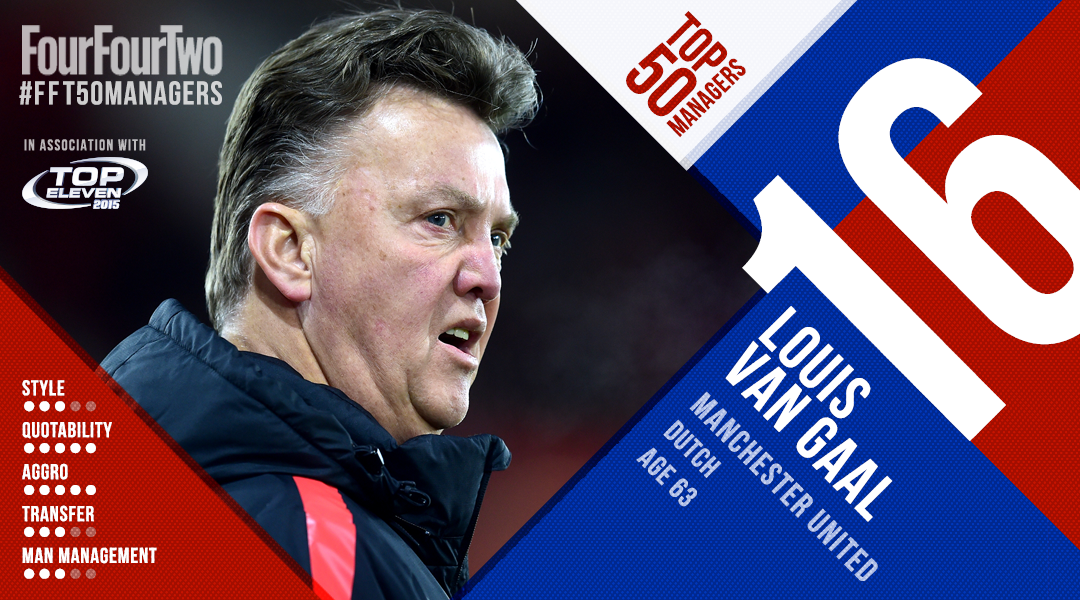
He was the trainer I learned most from, even though he’s the one I’ve had the most confrontations with – well, disagreements. He’s got an obsession with work ethic, the way he plans. Maybe I preferred a lighter style to his
After winning 12 major trophies with the likes of Ajax, Barcelona and Bayern Munich, Van Gaal spoke with Liverpool about a job at Anfield in 2012. It didn’t materialise, and a few months later he took charge of the Dutch national team for the second time instead.
The 63-year-old led them to the World Cup finals in convincing fashion and announced in the meantime that this was probably his last job as a head coach. He did say, however, that if an interesting Premier League club came along, he would reconsider that decision. After interest from Tottenham, the experienced Dutchman was eventually approached by United; an attractive prospect for Van Gaal, who’d never worked in England before.
After leading Holland to an impressive third place at the World Cup, he immediately started his new job at Old Trafford, where he continued to impress during pre-season. But once the Premier League season started, his team faced difficulties despite an outlay of over £150 million during the transfer window.
His team managed to recover in the second half of the season, though, securing fourth and a likely return to the Champions League next season. Although expectations will be higher for the new season, Van Gaal at least endeared himself to United fans with his outspoken affection for the club in public appearances, most notably his speech at the club’s end-of-season awards night. AR
FFT's 50 Best Football Managers: 50-46 • 45-41 • 40-36 • 35-31 • 30-26 • 25-21 • 20-16 • 15-11 • 10 • 9 • 8 • 7 • 6 • 5 • 4 • 3 • 2 • 1
#FFT50MANAGERS See our full list of top 50 managers in the world and features on them here
Joe was the Deputy Editor at FourFourTwo until 2022, having risen through the FFT academy and been on the brand since 2013 in various capacities.
By weekend and frustrating midweek night he is a Leicester City fan, and in 2020 co-wrote the autobiography of former Foxes winger Matt Piper – subsequently listed for both the Telegraph and William Hill Sports Book of the Year awards.
